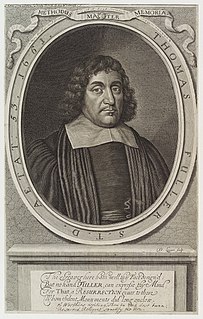A Quote by James Russell Lowell
Related Quotes
The errors of a wise man are literally more instructive than the truths of a fool. The wise man travels in lofty, far-seeing regions; the fool in low-lying, high-fenced lanes; retracing the footsteps of the former, to discover where he diviated, whole provinces of the universe are laid open to us; in the path of the latter, granting even that he has not deviated at all, little is laid open to us but two wheel-ruts and two hedges.
A man must generally get away some hundreds or thousands of miles from home before he can be said to begin his travels. Why not begin his travels at home? Would he have to go far or look very closely to discover novelties? The traveler who, in this sense, pursues his travels at home, has the advantage at any rate of a long residence in the country to make his observations correct and profitable. Now the American goes to England, while the Englishman comes to America, in order to describe the country.




































